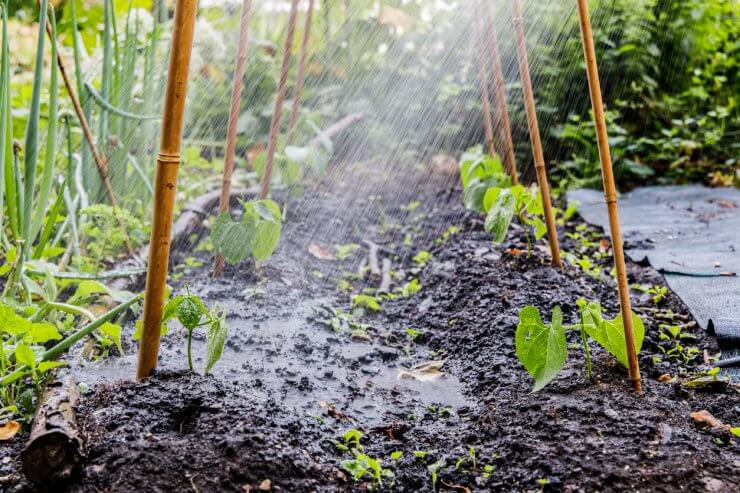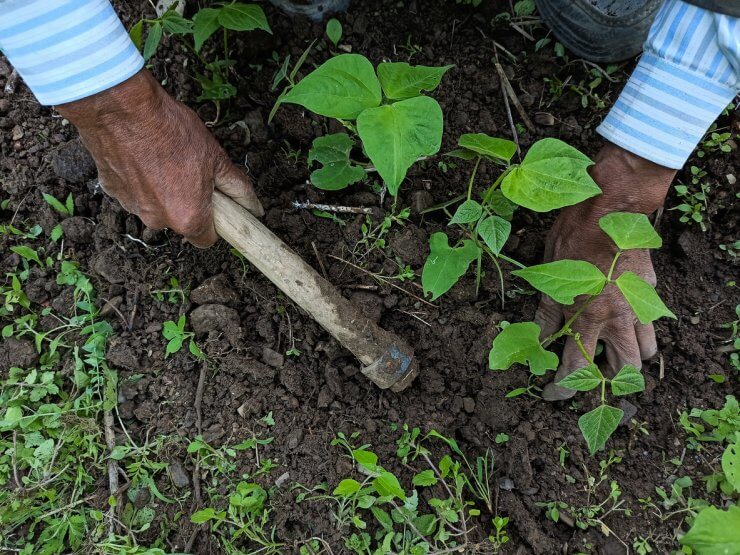
Watering green beans
Once your green beans are established, keep them watered consistently, especially when flowering as that keeps the flowers coming. Green beans need 1 to 2 inches of water per square foot a week, including rainwater. Absent rain, water weekly and deeply.
Water on sunny days, preferably in the morning, at the base of the plants. This will allow excess water to evaporate and will keep the water off the foliage, helping to avoid diseases. In fact, try to stay out of the garden when the soil is very wet as tramping around can spread fungal diseases.
Mulch is helpful to help conserve water and deter weeds. Shredded leaves or straw works well for green beans.
Weeding

Weeding beans
When it comes to weeding around your green beans, early and often is best. If you’ve used weed-free soil and well-rotted organic matter, and laid down mulch, you shouldn’t have a big weed problem.
Properly preparing your soil is an excellent preventive measure against the emergence of weeds. When you till or cultivate the area where you’ll plant your green beans, remove weeds and debris. You’ll likely find that the first few weeks after planting are the only time you’ll be pulling up weeds around your green beans.
If weeds spring up around your green bean plants during the growing season, work the soil around the base of the plants gently. Go only deep enough to kill the weeds and not damage the plant’s tender roots.
Fertilizer
As legumes, green beans fix their own nitrogen, so their fertilizer needs aren’t voracious. Avoid using a high-nitrogen fertilizer, otherwise you’ll get a lot of foliage and few beans. Applying a side dressing of organic manure halfway through the season should suffice.
How often do you have to fertilize or water your green beans? Do you have any particular challenges growing green beans? Please tell us your tips for nurturing healthy green beans.


 Previous
Previous


Can you mulch bush green bean an dhow about compost from my kitchen composter?
Can u use chicken fertilizer or worm castings?, when planting green beans
Michelle – Great question. As chicken manure tends to be high in nitrogen (which may lead to lots of green bean foliage and not so many actual beans) and it needs to be well aged before it’s ready to use, you might want to go with worm castings. Worm castings are highly nutrient, gentler on the roots and should provide the slow release fertilization that your beans will appreciate.